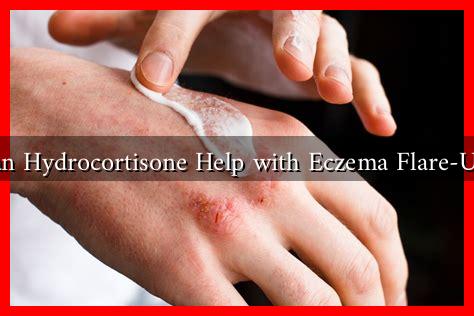-
Table of Contents
Can Hydrocortisone Help with Eczema Flare-Ups?
Eczema, also known as atopic dermatitis, is a chronic skin condition characterized by inflamed, itchy, and red patches of skin. It affects millions of people worldwide, with varying degrees of severity. One of the most common treatments for eczema flare-ups is hydrocortisone, a topical corticosteroid. This article explores the effectiveness of hydrocortisone in managing eczema flare-ups, its mechanism of action, potential side effects, and alternative treatments.
Understanding Eczema and Its Symptoms
Eczema is not just a skin condition; it can significantly impact a person’s quality of life. Symptoms often include:
- Intense itching
- Red or brownish-gray patches of skin
- Dry, sensitive skin
- Thickened, cracked, or scaly skin
- Small, raised bumps that may leak fluid when scratched
Flare-ups can be triggered by various factors, including allergens, irritants, stress, and changes in weather. Understanding these triggers is crucial for effective management.
What is Hydrocortisone?
Hydrocortisone is a mild topical corticosteroid that helps reduce inflammation and suppress the immune response in the skin. It is available over-the-counter in various strengths, making it accessible for many individuals suffering from eczema. Hydrocortisone works by:
- Reducing redness and swelling
- Decreasing itching and discomfort
- Preventing the release of substances in the body that cause inflammation
Effectiveness of Hydrocortisone for Eczema Flare-Ups
Numerous studies have demonstrated the effectiveness of hydrocortisone in managing eczema flare-ups. A study published in the Journal of Dermatological Treatment found that patients using hydrocortisone experienced significant improvement in their symptoms compared to those using a placebo. The study highlighted that hydrocortisone could effectively reduce itching and inflammation within a few days of application.
Another research article in the British Journal of Dermatology indicated that hydrocortisone is particularly effective for mild to moderate eczema. Patients reported a marked reduction in flare-up frequency and severity when using hydrocortisone as part of their treatment regimen.
Potential Side Effects of Hydrocortisone
While hydrocortisone can be beneficial, it is essential to be aware of potential side effects, especially with prolonged use. These may include:
- Skin thinning (atrophy)
- Stretch marks (striae)
- Increased risk of skin infections
- Allergic reactions
To minimize these risks, it is crucial to follow the recommended usage guidelines and consult a healthcare professional for personalized advice.
Alternative Treatments for Eczema
In addition to hydrocortisone, several alternative treatments can help manage eczema flare-ups:
- **Moisturizers**: Regular use of emollients can help maintain skin hydration and barrier function.
- **Calcineurin inhibitors**: Non-steroidal medications like tacrolimus and pimecrolimus can be effective for sensitive areas.
- **Phototherapy**: Controlled exposure to ultraviolet light can help reduce inflammation.
- **Antihistamines**: These can help alleviate itching, especially at night.
Conclusion
Hydrocortisone can be an effective treatment for managing eczema flare-ups, particularly for mild to moderate cases. Its ability to reduce inflammation and itching makes it a popular choice among healthcare providers and patients alike. However, it is essential to use it judiciously to avoid potential side effects. Combining hydrocortisone with other treatments, such as moisturizers and calcineurin inhibitors, can provide a comprehensive approach to managing eczema. Always consult with a healthcare professional to determine the best treatment plan tailored to individual needs.
In summary, while hydrocortisone is a valuable tool in the management of eczema, understanding its benefits and limitations is crucial for effective treatment. By staying informed and proactive, individuals with eczema can better navigate their condition and improve their quality of life.


